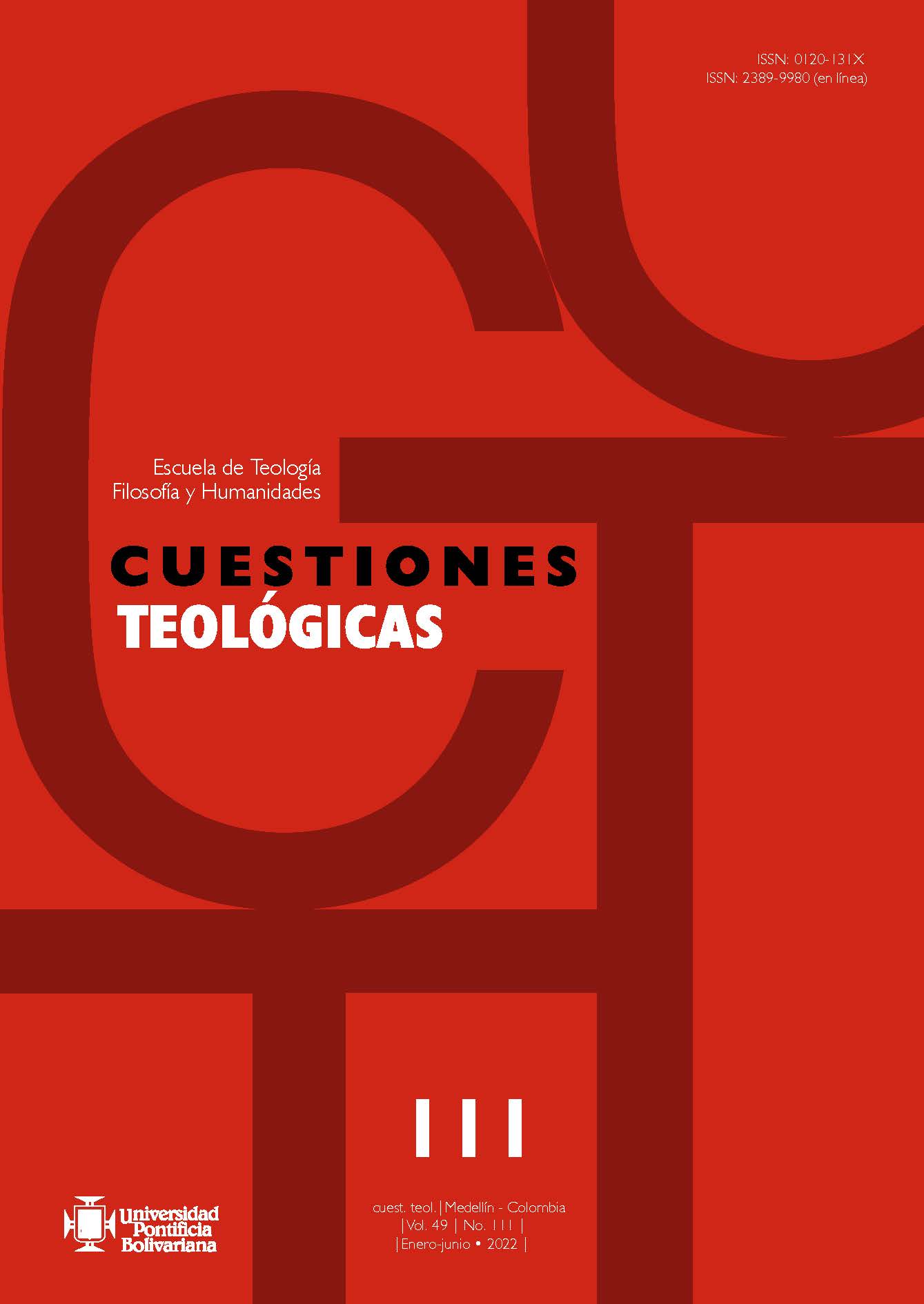Methods of Biblical Exegesis
Main Article Content
Abstract
Biblical texts are the product of a sometimes long and complex writing process. They were written in social and cultural circumstances that left marks in the content. The authors followed literary guidelines according to the purpose of the different writings and represent the intent to respond to situations in the target communities that challenged their religious faith. Knowing this complexity of elements that are "behind the text" is a requirement for the Bible scholar if he wants to access the richness of its content and the meaning it had for the first readers. Therefore, biblical study requires methodological processes appropriate to the characteristics of the texts that allow discovering their depth and relevance for the Church today. The scientific tradition has been developing different methods of proven effectiveness that today seem to be essential for the academic study of the meaning of biblical texts. This article exposes them grouped into three categories: diachronic, synchronic and contextual. Previously, the necessary steps to begin work with the texts of Scripture are explained.
References
Aguirre, R. (1998). Del movimiento de Jesús a la Iglesia cristiana: Ensayo de exegesis sociológica del cristianismo primitivo. Verbo Divino.
Aguirre, R. (2010a). La Biblia desde el punto de vista de la exégesis sociocientífica. Didaskalia, 40(1), 89-112.
Aguirre, R. (2010b). La Biblia y la exégesis sociocientífica: Introducción y aplicaciones. https://fdocuments.net/document/la-biblia-y-la-exgesis-sociocientfica.html?page=1
Aland, B., Aland, K., Karavidopuolus, J., Martini, C. y Metzger, B. (eds.) (2014). The Greek New Testament (5.ª ed.). Deutsche Bibelgesellschaft.
Aletti, J.-N., Gilbert, M., Ska, J.-L. y de Vulpillières, S. (2007). Vocabulario razonado de la exégesis bíblica. Verbo Divino.
Alonso Schökel, L. (1987). Hermenéutica de la Palabra (vol. II). Cristiandad.
Artola Arbiza, A. M. y Sánchez Caro, J. M. (2020). Biblia y Palabra de Dios. Verbo Divino.
Biblia Hebraica Stuttgartensia. (1997). Deutsche Bibelgesellschaft.
Concilio Vaticano II. (1965). Constitución Dogmática Dei Verbum sobre la Divina Revelación. Librería Editrice
Vaticana.
Egger, W. (1990). Lecturas del Nuevo Testamento. Verbo Divino.
Gaitán, T. (2006). Métodos de interpretación de la Biblia. Cuestiones Teológicas, 33(79), 141-169.
Guijarro, S. (2017). La aportación del análisis contextual a la exégesis de los textos bíblicos. Cuestiones Teológicas, 44(102), 283-300. https://doi.org/10.18566/cueteo.v44n102.a04
Lentzen-Deis, F., Scobel, G., Mora Paz, C. y Deberge, P. (1990). Jesús en la reflexión exegética y comunitaria. Paulinas.
Marguerat, D., Wénin, A. y Escaffre, B. (2005). En torno a los relatos bíblicos. Verbo Divino.
Martos García, A. E. (2012), El método de la Historia de las formas: Hermann Gunkel y las leyendas de la “Biblia”. Tejuelo: Didáctica de la Lengua Y LA Literatura, 5(13), 48-68.
Miquel, E. (2011). El Nuevo Testamento desde las ciencias sociales. Verbo Divino.
Mora Paz, C., Grilli, M. y Dillmann, R. (1999). Lectura pragmalingüística de la Biblia: Teoría y aplicación. Verbo Divino.
Pisano, S. (1997). Il testo dell’Antico Testamento. En H. Simian-Yofre (ed.), Metodologia dell’Antico Testamento (pp. 39-78). Dehoniana.
Pontificia Comisión Bíblica. (1993, 15 de abril). La interpretación de la Biblia en la Iglesia. Librería Editrice Vaticana.
Real Academia Española. (2014). Método. En Diccionario de la lengua española. https://dle.rae.es/m%C3%A9todo
Simian-Yofre, H. (1997). Diacronia: I metodi storico-critici. En H. Simian-Yofre (ed.), Metodologia dell’Antico Testamento (pp. 79-120). Dehoniana.
Ska, J-L. (1997). Sincronia: L’analisi narrativa. En H. Simian-Yofre (ed.), Metodologia dell’Antico Testamento (pp. 139-170). Dehoniana.
Ska, J-L., Sonnet, J-P. y Wénin, A. (2001). Análisis narrativo de relatos del Antiguo Testamento. Verbo Divino.
Strecker, G. y Schnelle, U. (1997). Introducción a la exégesis del Nuevo Testamento. Sígueme.
Weren, W. (2003). Métodos de exégesis de los Evangelios. Verbo Divino.
Whitelam, K. (1998). El mundo social de la Biblia. En J. Barton (ed.), La interpretación bíblica, hoy (pp. 53-69). Sal Terrae.






